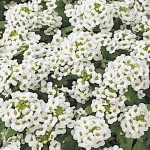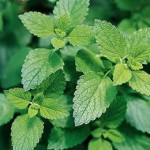One of the most popular reasons people grow their own vegetables is to control what chemicals go onto them. Luckily nature has developed its own very effective system for controlling pests.
What Are Insect Predators?
In the world of animals, there are carnivores (predators) and herbivores. The carnivores are meat eating, and feed on the herbivores.
The same happens in the insect world – where specific insect predators eat other insects. We can harness this natural cycle as one of the strategies to naturally control pests in our vegetable gardens. Insect predators eat other insects.\
Insects such as ladybugs, lacewing bugs, spiders, wasps, certain mites, damsel bugs and many others are known as beneficial insect predators and you want to attract these into your veggie garden..
You can do this by creating an insectary by planting predator attracting plants. The garden insectary is a type of “companion planting“.
By planting a range of predator attracting plants you can provide alternative food sources (such as nectar and pollen, required by many predators as part of their diet) as well as habitat and shelter. For example, you can control aphids by attracting an aphid-specific predator such as Aphidius by planting lupins or sunflowers.
Your insectary only needs to be big enough to hold six to seven varieties of plants that attract insects. Once these plants have matured, your beneficial insects will efficiently take over the insect pest control in your vegetable and fruit garden for you.
Tips for Creating An Insectary
- Grow plants of various heights in your insectary: lace wings lay their eggs in protected, shady areas. Ground beetles like the cover from low growing plants such as mint, thyme or rosemary
- Flowers such as daisies and mint-like plants such as peppermint, spearmint etc will attract robber flies, hover flies and predatory wasps.
- Plant insectary annuals between your vegetable beds. This will lure beneficial insects as well as adding a touch of decoration to your garden.
- Let some of your vegetables grow to flower (carrots, broccoli, brussel sprouts, cabbage, bok choy etc).
Ideal Insectary Plants
Good insectary plants include :
Alyssum |
Lemon balm |
- Alyssum
- Amaranthus
- Convolvulus
- Cosmos
- Daucus carota (Queen Anne’s Lace)
- Digitalis
- Limonium (Statice)
- Lemon balm
- Parsley
- Peonies
- Verbascum thaspus
A garden insectary should be a permanent component of your veggie garden. The longer your insectary is in place, the more effective it will be as insects discover this place that provides food, shelter and a source of nearby food.
As your plantings mature and resident populations of beneficial insects are established, the need for toxic chemical pesticides will diminish. Your garden will become a more natural and balanced environment for the production of healthy vegetables and flowers.
Tags: beneficial predators, insect predators, insectary, lady bugs
